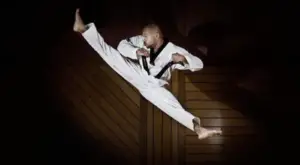
Chuck Johnson, the action actor/stuntman turned award-winning film producer, loves to make action films with a message. He took his experiences working in a Japanese strip club, and hostess bar as well as the experiences of others, and put them into his new film, “Eastbound Traffic.” Chuck Johnson’s movie explores the harsh reality of human trafficking and the long-term impact it can have on individuals and society as a whole.
Can you tell us a little bit about your inspiration for this new project?
My new film Eastbound Traffic was inspired by my experience working in a Japanese strip club & hostess bar. When I first started off doing action films in Japan, there were no other non-Japanese stuntmen or action actors. In the core of my soul, I knew that that meant that if I made it, I would be the trailblazer, and the pioneer, and that’s what kept me going in the early years. During that time, no one in the industry knew I was here, and the work was very much few and far between. Through it all, I still needed to both keep training and support myself, and as all of my acting, stunt and action training was during the day, traditional jobs just weren’t really an option. I had a friend who was working as a stripper, and given my build, he suggested that I do it with him as a night job. I had zero experience, and didn’t consider myself the kind of person that would do that kind of work, but sometimes life means doing whatever you have to do… so I took the job. Soon after I started working there, I noticed things. Girls would come in fresh-faced, and optimistic with dreams of starting a new life, or getting away from an arranged marriage or supporting family back home… But with time, all that optimism and youthful energy was gone, and even their faces seemed to age considerably. Sometimes it only took a few months. Then there would be times when they would come in with these big bruises and no one would talk about how or why they had them. They would just cover them up with make-up or opaque tights and go about their jobs. Sometimes girls would just disappear altogether. I would say, “What happened to such and such?” And the answer most of the time, was “I don’t know.” One of the biggest red flags came when I heard girls talk about how they came over on a tourist visa, had their passport taken and held so that the holder “can get their visas processed” and a few months later they would be told that their tourist visa had expired, and they were now there illegally. Working anywhere else, or going to the cops wasn’t an option anymore, unless they wanted to risk jail time. Or at least so they were told. Once I got out of that space myself, I always promised myself that I would find a way to tell their stories; and that was the impetus for making Eastbound Traffic. This is my third time trying to make this film, and this time, 20 years into my career, I am going at it with much more knowledge, resources and expertise than I had previously.
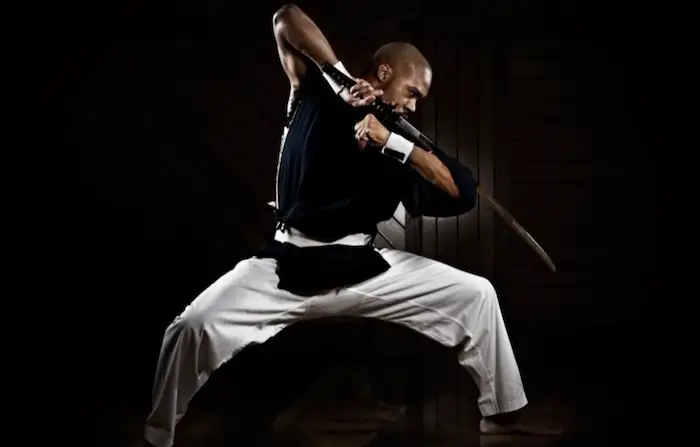
This really sounds like a story that needs to be heard. Can you tell us a little bit more about the story and characters?
The story is a combination of a bunch of real-life experiences from the main actors. Eastbound follows a Russian girl whose sister disappears when she takes a job in Tokyo, so she comes to Tokyo to find her or at least to find answers so that she can get some kind of closure. Ultimately, she ends up getting pulled into the same world that consumed her sister, and she has to find her way out.
It started with me writing down my experiences and things I saw when I worked in the club… but all I had to go on was memories from when I was younger, and what I saw as a man working there. My experience was, of course different from that of the girls at our club. I wanted to make sure my perspective wasn’t biased, so I started to go and speak to other people in and around that world. I also started doing general research about missing people and sex trafficking. Ultimately, the present story, although fictional, ended up being a combination of experiences from different people. In particular, the people whom I got the most from are also two of the other main actors in the film; Alisa Wild, who will be playing the main character, and she had family members who worked in the industry, and Tiffany Rossdate, a Filipina trans woman who worked her way to the top of Tokyo’s nightlife scene and the wealthy Ginza district’s hostessing scene, all while trying to keep the fact that she was transgender a secret. A lot of the film is based off of things I, Alisa, and Tiffany’s saw, experienced, or lived through.
As all 3 of us are professionally trained actors, I wanted to go beyond simply hiring them as actors or just drawing on their experiences for the story. I wanted to write the story so that we could all relate to the circumstances of the characters we are playing in a very deep and real way.
Beyond that I also wanted to use the film to explore something that is rarely discussed in films about Japan; the life and struggles of its various minorities. With the exception of the film, Swallowtail (which is also referenced in Eastbound Traffic), both foreign and domestic films about Japan tend to portray it as being 100% culturally homogenous, there are a lot of different people living here. There are American expatriates like myself, North Korean refugees, African entrepreneurs, Brazilian 2nd generation Japanese people, etc, the list goes on and on… and all of the stories of these people never really get told or represented in films about Japan.That’s another thing that I hope to change.
This is a super important film and there are a lot of things I am looking to convey with it. Looking beyond Eastbound Traffic however, what I really want to do is, create action films that are intelligent, socially conscious and discuss the important issues of our time. Instead of just creating action films for the sake of action, I want to create films that raise awareness of things that we need to be talking about as a society and that drive the kind of social dialog that ultimately creates change. My father was a peace activist and then a social activist in the U.S, and I also spent a long time as a peace and social activist in Asia. I actually sailed around the world twice working in activism, lived in a buddhist temple and traveled to 33 countries around the world exploring social, environmental and political issues. I hope to create films that have a positive social impact, but in the context of really cool action with fight scenes, car chases, stuff getting blown up and all the other things that make the action film genre so engaging.
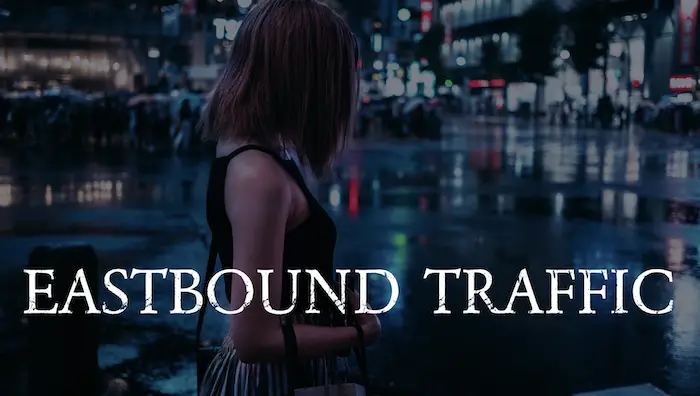
What is the next step after Eastbound Traffic?
Producing Eastbound Traffic will be a big leap forward, but I only see that as the first step. The next step after that, will be producing a feature version of my first film, “Fists of Absinthe” but having the story revolve around mental health. As the short film was, it will be an action comedy, but underneath that, it will really be about the importance of mental health care, what we can do to work through issues that we all face in life, and the challenges of supporting our loved ones through the process. Mental health has become a hot-button issue, especially since the pandemic started. I think, to a large degree, America and other countries are in a mental health crisis because people have been locked in their houses for years and have lost their jobs and businesses in the process. A lot of people have also lost family members and friends to both COVID and suicide as well. So, I think it is important to create films that address these serious issues and start a discussion that people need to have.
You will also be acting in the film as well. Can you tell us a little bit about your character?
My character, Baron, is the owner of the club that the main character ends up working at. As for my character, he originally came from a military family. A lot of the African Americans that you meet in Tokyo are actually from military families, and some are there from the military themselves. Like any group of people, some of them come from good families; some come from bad families. In the case of my character, he came from a military family with an abusive father, whom he ended up killing in his teens while trying to defend his mother. In his backstory, he managed to flee from Okinawa and ended up in Tokyo. With no education, not knowing a soul, and having no way to survive, he meets one of the other characters in the film, and they get into the sex trafficking business. Eventually, the partner ends up in jail, and Baron takes over the club they were running, and a legitimate business blossoms under his ownership. Even with the success of his business, he still seriously grapples with guilt from his past, alcoholism, and trust issues, and he has to juggle all of it, while trying to keep his business- the only thing he’s ever known- alive.
The style of the film pulls inspiration from a lot of different sources. For example, a lot of the story delves into the backstory of each of the characters; and in order to keep past and present clearly delineated, I’d like to use animated sequences (or at least Manga Style imagery) to tell the character backstories. Something similar was done in Kill Bill. There was also a little bit of inspiration from Game of Thrones in the style of multiple character storytelling because as the story progresses, you’re learning more and more about each character and why they are who they are.
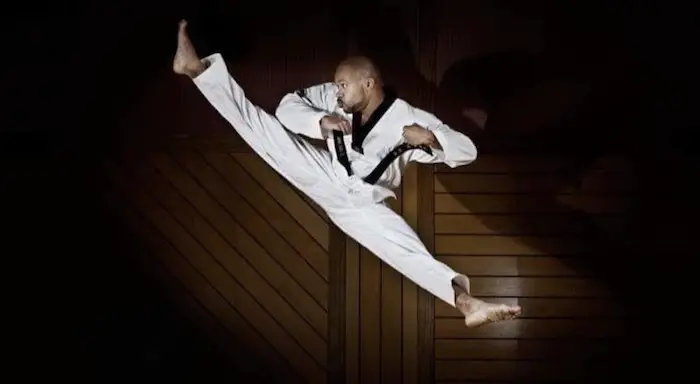
This film sounds very relevant. Why do you think audiences will be drawn to this film?
This film is going to deal with a lot of the things in Tokyo that you never really hear about. People have this image of Tokyo as being all bright neon lights and technological innovation, but Tokyo definitely has a dark underbelly to it. And “Eastbound” is going to dive deeply into that to bring life to issues that I think need to be discussed. Like any good story, it’s really about the humanity of the characters. And it’s about the fact that people are the way they are because of past traumas and experiences. It’s about broken people and what happens when those people meet and collide. I also think people will be able to relate to the main characters, because even if we all have different life experiences, the human experience is ultimately the same for everyone. We all know what it feels like to be backed against a wall, to be afraid, to have to fight past our faults, or to try not to be victims of our past while pushing forward to be the captains of our future.
For more information about Chuck Johnson or news about his upcoming projects go to his website www.chuck-in-action.com
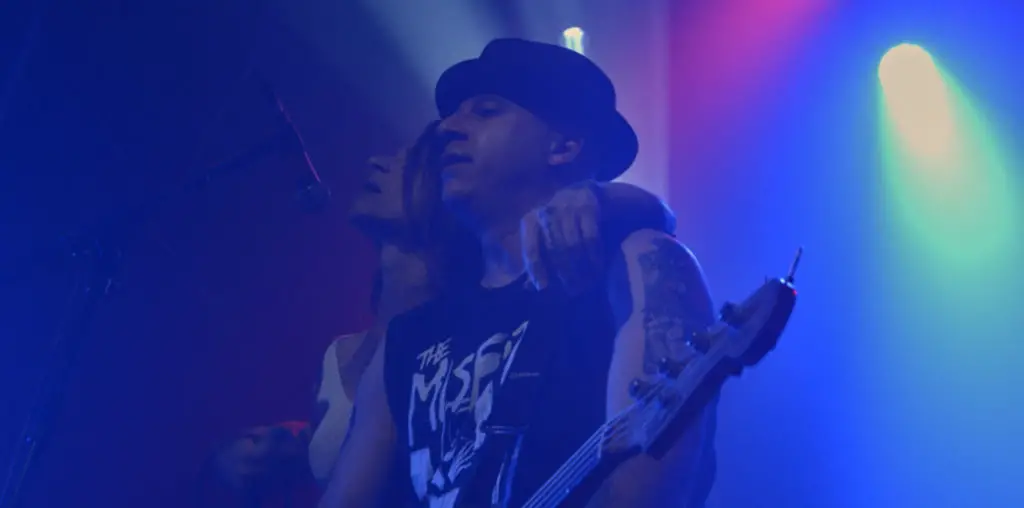

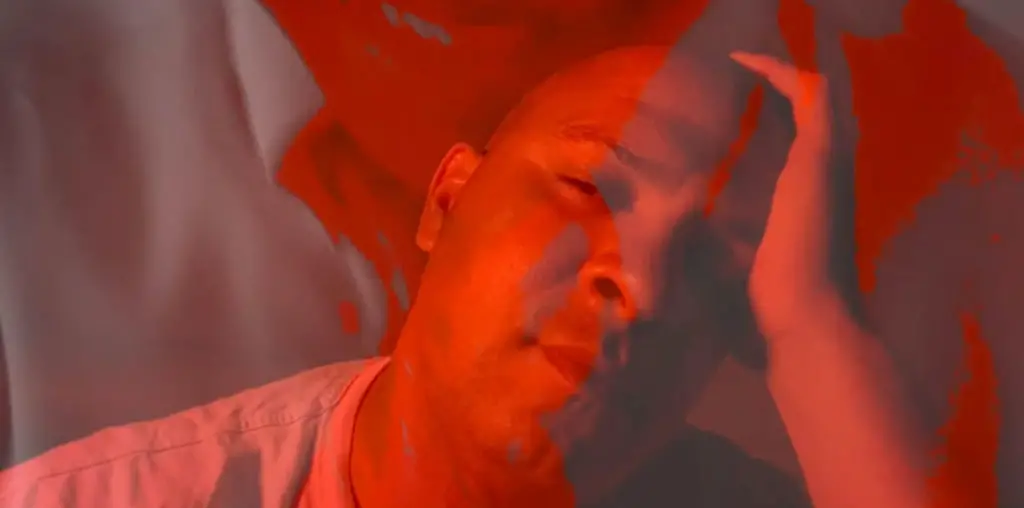
[…] Source link […]
[…] Credit: Source link […]